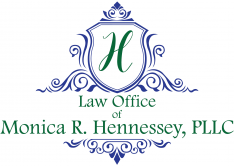1) What do I want to do with my property? Knowing what you own is the first step, then you should consider who should get your property. Do you want to treat your beneficiaries equally, or do you want to treat them differently, based on the gifts you have already made and the resources each have?
2) Do my non-probate assets meet my estate planning goals? Non-probate assets are assets that transfer automatically and do not require probate to transfer to beneficiaries. These are typically insurance policies, retirement accounts, investment accounts, and bank accounts. A will does not override beneficiary designations or joint ownership with right of survivorship. Make sure you know what beneficiary designations are on these accounts and update them as your goals change.
3) Who will I name as executor? Naming the right executor is important. An executor is the person appointed to finalize any outstanding business (like closing accounts, finishing up lawsuits, settling debt, etc.) and transferring assets to heirs and beneficiaries. Make sure you name someone who is organized, responsible, and can deal with the personalities of the beneficiaries.
4) If I have minor children, who will take care of them if both parents are gone? The courts will appoint the person that you designate in your will to care for your children. You can also tell the court who you absolutely do not want as guardians for your children.
5) Who do I trust to make legal decisions for myself if I become incapacitated? Having a financial power of attorney is very important and will allow you to appoint someone to make these decisions. Make sure that you appoint someone who is responsible, organized, and will do what is in your best interest.
6) Who will make medical decisions for me if I cannot? A medical power of attorney will allow you to appoint the person who will make medical decisions for you if you cannot make those decisions for yourself. Make sure to name someone you trust and that knows how you would like to be treated. Also consider if there are medical procedures that you do not want to allow your medical power of attorney to authorize.
After considering these questions, make sure to speak to an estate planning attorney who can make sure all your goals are met and that your documents do what you want them to do.

